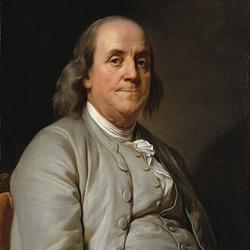
Editor's Note: This piece was developed with the assistance of the Evangelical Philosophical Society and its peer-reviewed journal, Philosophia Christi.
By William Lane Craig and Paul Copan
Between 1966 and 1980, Time magazine reversed its outlook about God's future -- from the cover story "Is God Dead?" to the piece "Modernizing the Case for God." What happened between the times? Did atheism experience an upsurge? No! Despite all the recent New Atheist media hype, atheism in America has held fairly steady over the years -- from 4 percent in 1944, according to Gallup, to 4 percent in 2007. Why then the change? Because nothing short of a veritable revolution in Anglo-American philosophy had begun! The Time magazine cover story of April 8, 1966 described the so-called "Death of God" movement then current in American theology. Ironically, at the same time that theologians were writing God's obituary, a new generation of young philosophers was re-discovering His vitality. The turning point probably came in 1967 with the publication of Alvin Plantinga's God and Other Minds, which applied the tools of analytic philosophy to questions in the philosophy of religion with an unprecedented rigor and creativity.
America has held fairly steady over the years -- from 4 percent in 1944, according to Gallup, to 4 percent in 2007. Why then the change? Because nothing short of a veritable revolution in Anglo-American philosophy had begun! The Time magazine cover story of April 8, 1966 described the so-called "Death of God" movement then current in American theology. Ironically, at the same time that theologians were writing God's obituary, a new generation of young philosophers was re-discovering His vitality. The turning point probably came in 1967 with the publication of Alvin Plantinga's God and Other Minds, which applied the tools of analytic philosophy to questions in the philosophy of religion with an unprecedented rigor and creativity.
In the middle of the last century, theistic philosophers were reluctant to identify themselves as such in an academic atmosphere hostile toward metaphysics. But during the 1970s, interest in philosophy of religion continued to grow. Thus on April 7, 1980, Time ran another major story in which it described the movement among contemporary philosophers to refurbish the traditional arguments for God's existence. Time marveled (pp. 65-66):
In a quiet revolution in thought and argument that hardly anybody could have foreseen only two decades ago, God is making a comeback. Most intriguingly, this is happening not among theologians or ordinary believers, but in the crisp intellectual circles of academic philosophers, where the consensus had long banished the Almighty from fruitful discourse.
In a 2001 article lamenting "the desecularization of academia that evolved in philosophy departments since the late 1960s," Quentin Smith, a prominent non-theistic philosopher, concluded that "God is not ‘dead' in academia; he returned to life in the late 1960s and is now alive and well in his last academic stronghold, philosophy departments" (Philo 4/2[2001]:4).
Today this revolution is ongoing, as its pioneers pass the torch to a new generation of talented and eager Christian philosophers. Smith even estimated that one-quarter to one-third of philosophers in America are theists, most of them Christians. The Society of Christian Philosophers and the Evangelical Philosophical Society (with their respective journals, Faith and Philosophy and Philosophia Christi) are stellar examples of vibrant, growing academic societies. The recently published volumes The Blackwell Companion to Natural Theology and The Routledge Companion to Philosophy of Religion -- with ample contributions from evangelical Christians -- are some of the more recent instances of this turnabout.




